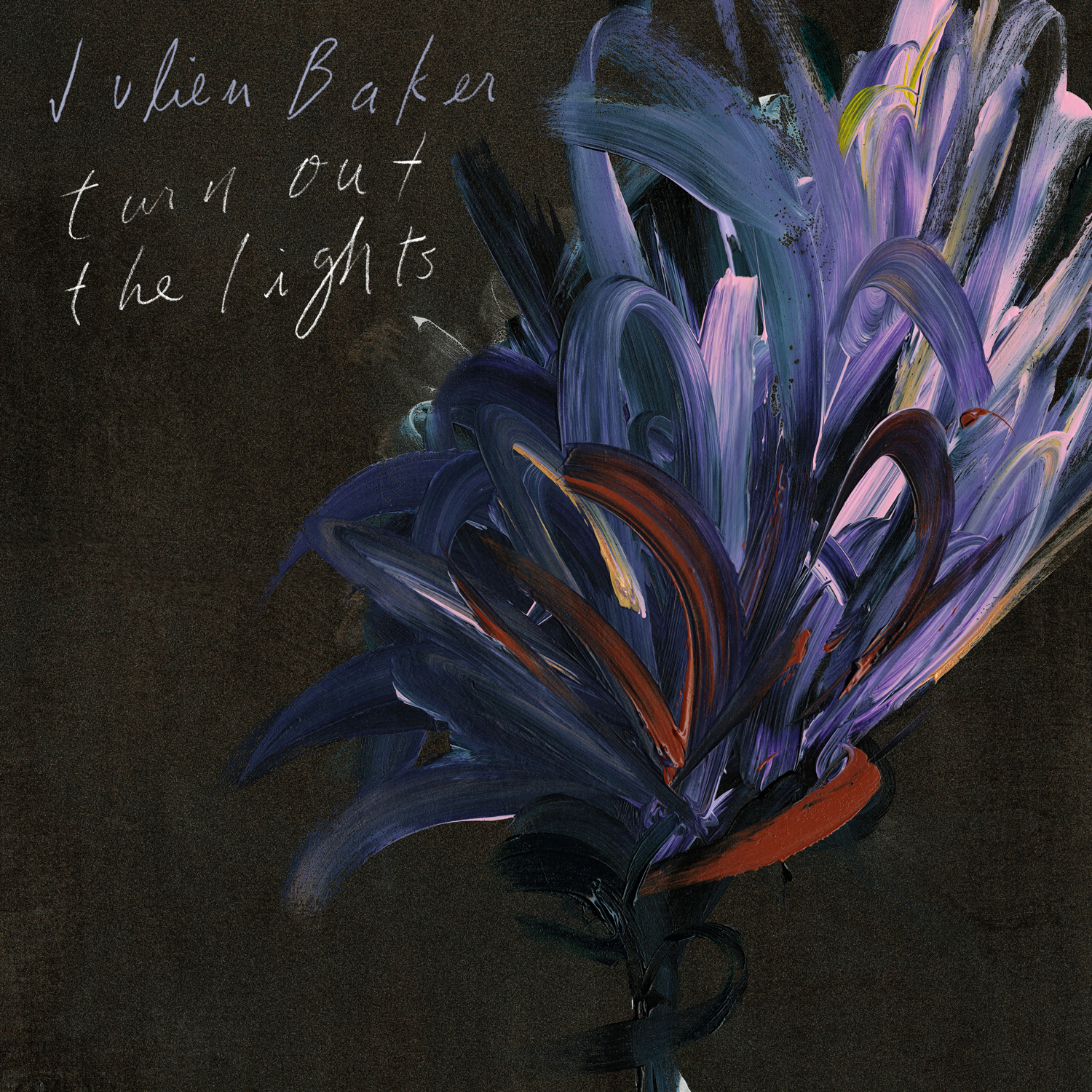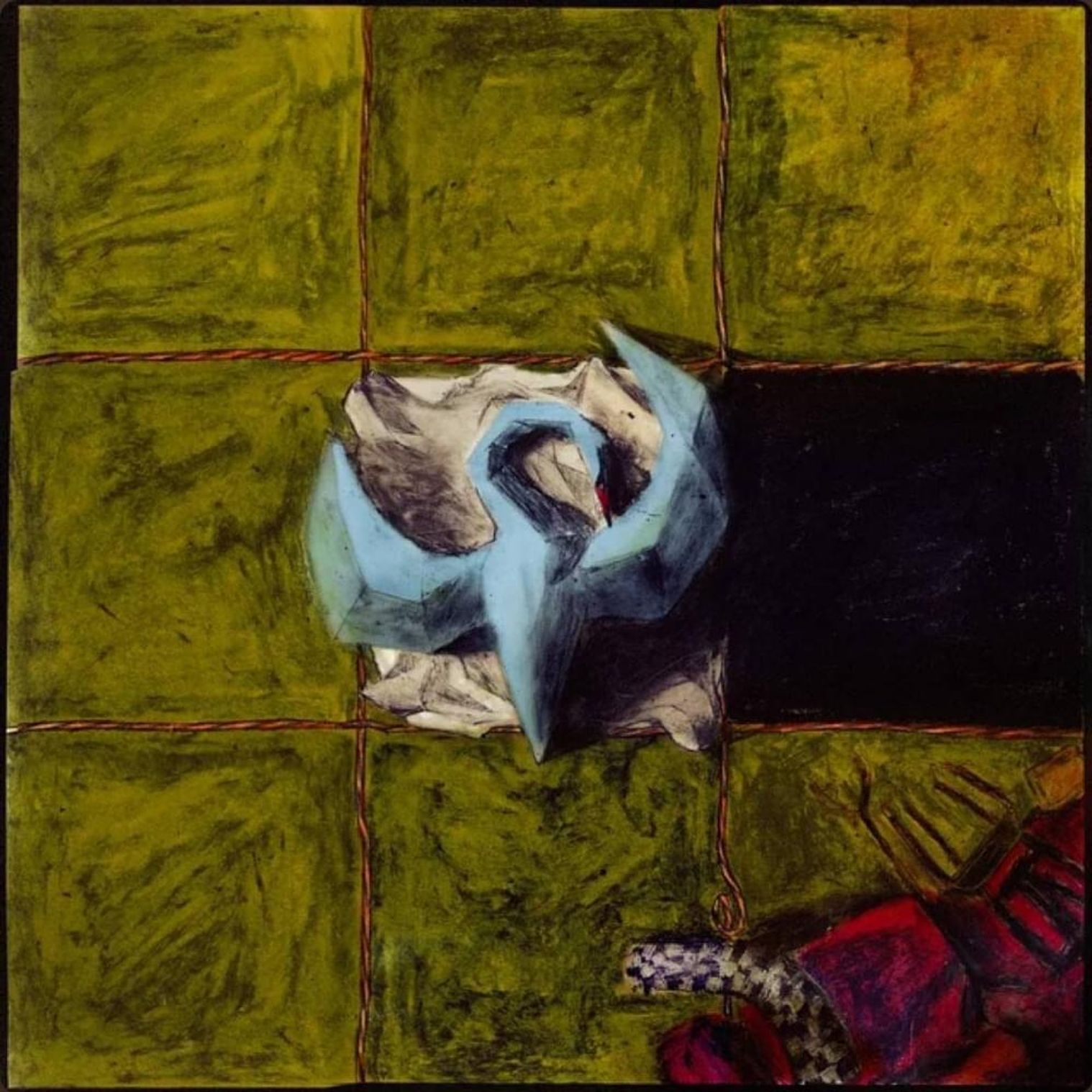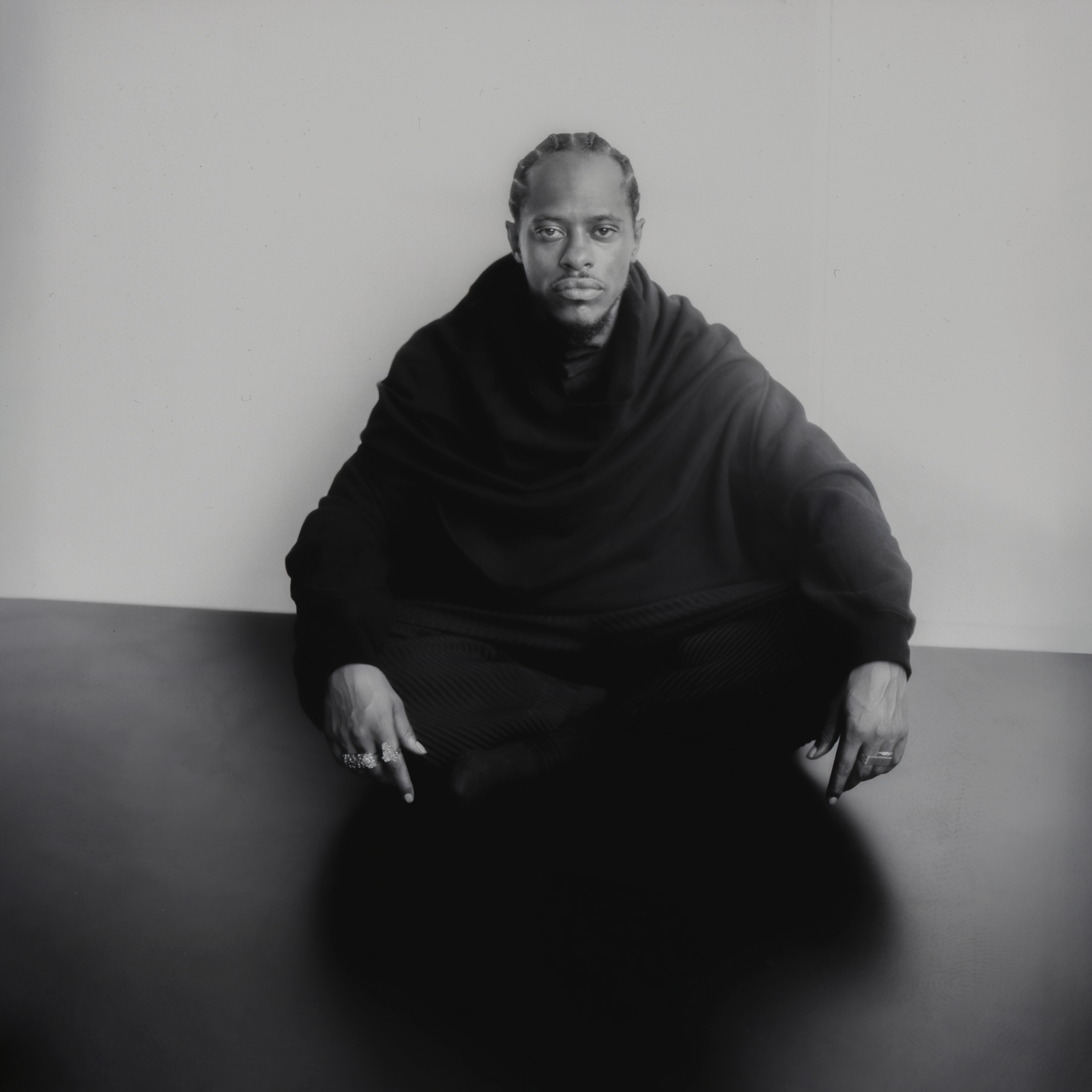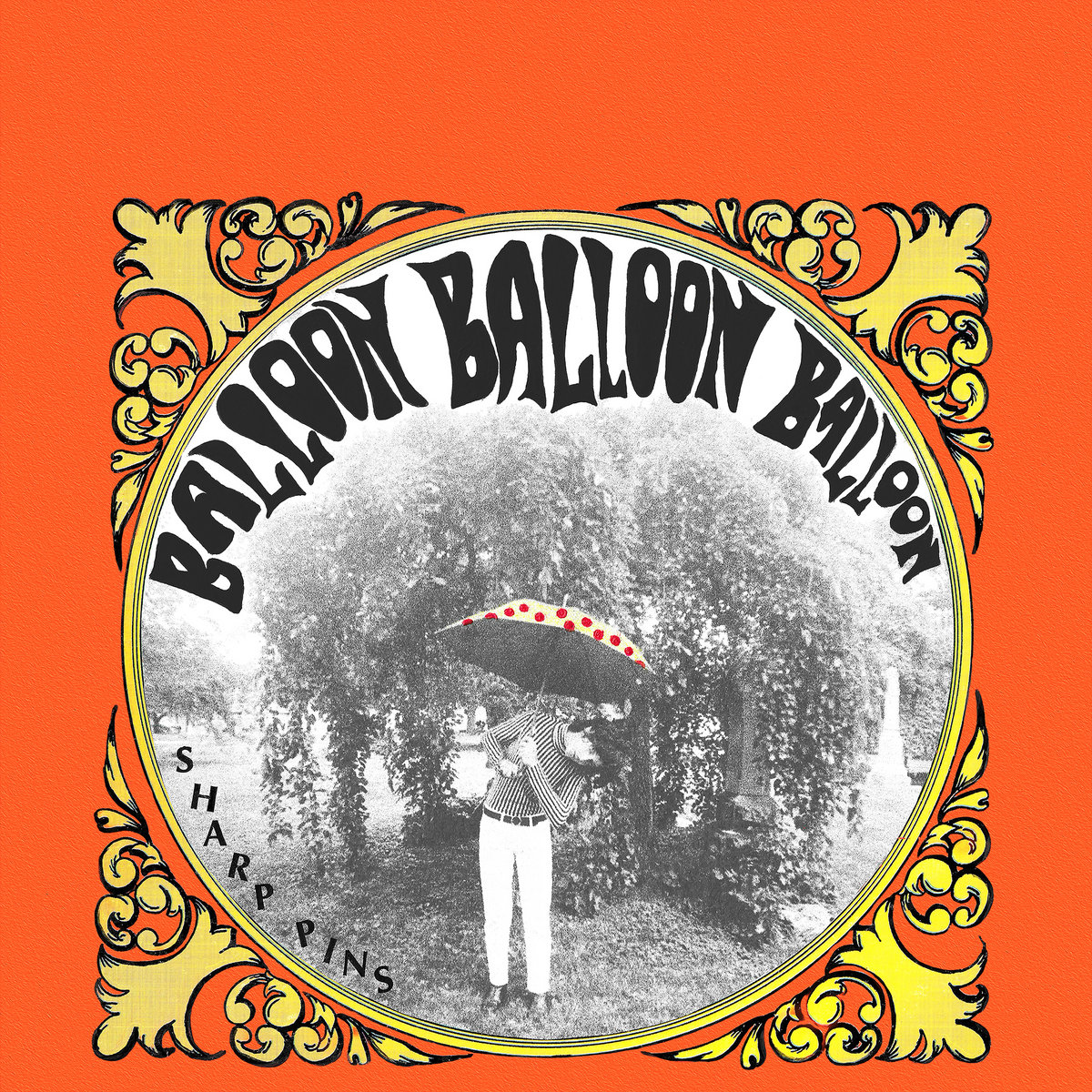There's a part in "Turn Out The Lights," the title track from Julien Baker's second album, that I wish I could grind into dust, dissolve into liquid, and then inject directly into my bloodstream. There's a minimal, reverby guitar strum with a hum in the background that sounds a bit like a church organ. Baker is singing quietly and gently, almost muttering, when she gives us these lyrics: "I just wanted to go to sleep / But when I turn out the lights / When I turn out the liiiiights / There is no one left between myself and me." And then, for just a second, Baker's voice goes quiet, while that churchy-organ sound draws itself up and out. Then Baker's voice comes back in, howling, roaring. She's singing that line again, the one about turning out the lights and finding only herself there. But now she's just wailing it at the top of her lungs, and that guitar sound is building a whole cathedral around her. This isn't some grand production. Baker is the only musician on the song, and she's just making it sound bigger through the power of effects pedals and multitracking. But the effect is like a whole orchestra coming crashing down on you. I hear that part of that song, and I feel like I'm flying.
Turn Out The Lights is full of moments like that. There were a few, too, on Sprained Ankle, the debut album that Baker released back in 2015. That's an album of remarkable sophistication, especially coming from someone who was just 19 when it came out. Baker produced that album, and she was the only musician who played on it, but it didn't sound like some sketched-out, home-recorded lo-fi demo. On things like the swelling, cathartic conclusion of "Rejoice," Baker channeled all the grand, demonstrative force of the church bands she played in as a kid and the post-hardcore that she played as a teenager. But even though Baker made Turn Out The Lights without a whole lot more help, it feels like a vast leap forward, a major statement of an album.
Baker's not the only musician on Turn Out The Lights. Camille Faulkner plays strings on four proper songs, as well as on "Over," the halfway-to-ambient intro track. Sorority Noise's Cam Boucher, a guy who walks similar scorched-earth emotional ground in his own music, plays clarinet and saxophone on "Over" and on "Appointments," the shattering lead single. Matthew Gilliam, Baker's old bandmate in her high-school emo band Forrister, sings harmonies on "Hurt Less," the song about finally deciding that it's worth the effort to wear a seatbelt for the first time in your life, about learning to care whether you live or die. But those contributions, important though they may be, aren't what matters here. As with Sprained Ankle it feels like we're getting unvarnished, almost uncomfortably personal pieces of realness from someone courageous enough to share what's going on in the darkest parts of her mind.
Sprained Ankle was an album about addiction and depression. Turn Out The Lights is different. The addiction is mostly gone; now we get lines about Baker recoiling from the smell of alcohol on someone else's breath. But depression is right there at the pulsing heart of the album, and the way Baker sings about it is sharp and poetic and extremely, viscerally real. Here's a big moment, a bit like that one on "Turn Out The Lights": On "Happy To Be Here," where Baker's voice starts out quiet and gets louder and louder: "I heard there's a fix for everyone else / Then why, then why, then why, then whyyyyy not me?" Another one, as "Sour Breath" is ending: "The harder I swim, the faster I sink," repeated over and over -- like it's an affirmation, even though it's just the opposite.
These are songs about bleak, heavy emotional states: "Tell me that I shouldn’t blame myself / You can’t even imagine how badly it hurts just to think sometimes how I think almost all the time." They're songs about having to depend on other people and then resenting those other people for not really understanding: "Grit my teeth and try to act deserving / When I know that there is nowhere I can hide from your humiliating grace." They're songs about feeling unworthy, feeling like a fuckup: "All my prayers are just apologies." They're songs about looking like you're doing better but knowing that you're not: "I don’t do too well when nobody’s worried about me."
But Baker doesn't make this an apocalyptic listen. She makes it, for lack of a better word, beautiful. Her voice is an astonishingly expressive instrument, a strained half-whisper when it has to be and a gale-force cry when the moment calls for it. There are people in office buildings in major media centers who are working hard to convey emotions through music in ways that seem to come innately to Baker. There's craft in her music, in the way she layers voices and sounds, but there's just as much emotional intelligence. Somehow, that voice of hers always cracks at the exact moment when it'll leave your soul looking like a smoking crater. The singers she reminds me of aren't people with whom she has anything in common artistically. They're the ones who seem like conduits for vast forces of pure feeling -- Conor Oberst on Fevers And Mirrors, say, or Mary J. Blige on My Life. She doesn't sound like either of them, of course. But like them, she uses her voice in ways that will just leave you flat.
Baker's command of the studio is sharper this time, too, and it was already plenty sharp on Sprained Ankle. Faulkner's strings add a certain grandeur; whenever they appear, they remind me of Civil War waltzes. Baker's playing a little more piano this time around, and the crystalline sharpness of that instrument contrasts nicely with the amniotic warmth of her reverb-slathered guitars. Listening to the album on repeat, as I've done ever since I got the promo, I forget, over and over, that I'm not listening to a full band. Baker's restraint is a choice, and it's an effective one.
And here's another effective choice: The all-suffusing darkness of Sprained Ankle, while it still hangs over the new album, breaks once or twice. There are moments where Baker seems to find something other than misery and guilt in other people, where she finds something that looks a bit like redemption. "Maybe it’s all gonna turn out all right," she considers on "Appointments." "And I know that it’s not / But I have to believe that it is." That's not exactly a ray of sunshine, but she does let that "maybe" linger. On "Hurt Less," she stops imagining her body flying through a windshield in a car crash and realizes that talking to someone sitting next to you can be a transformative experience. With her old bandmate singing behind her, she offers up this: "It's always something else, and I know it's a bad time /But there's no one left to call, and I was wondering if you would be my ride / And dammit, we are gonna figure something out if it takes me all night to make it hurt less." Amid all the album's doubt and fear and self-recrimination and regret, that's a moment of beautiful connection. And as long as we're injecting musical moments into our veins, I'd like to inject that one, too.
Turn Out The Lights is out 10/27 on Matador.
[videoembed size="full_width" alignment="center"][/videoembed]
[videoembed size="full_width" alignment="center"][/videoembed]
Other albums of note out this week:
• Gord Downie's Kevin Drew-produced double-album goodbye Introduce Yerself.
• Weezer's very produced Pacific Daydream.
• John Maus' queasy, idiosyncratic synthpopper Screen Memories.
• Big K.R.I.T.'s return-to-the-indies double album 4Eva Is A Mighty Long Time.
• Ty Dolla $ign's slick, guest-heavy R&B party Beach House 3.
• All Pigs Must Die's roiling hardcore attack Hostage Animal.
• Daniele Luppi and Parquet Courts' collaborative album MILANO.
• Modern Baseball side project Slaughter Beach, Dog's sharp, tuneful Birdie.
• Gnaw's hissing doom-rocker Cutting Piece.
• Lee Ann Womack's soulful country lament The Lonely, The Lonesome & The Gone.
• The Twilight Sad side project Out Lines' Conflats.
• Kyle Dixon and Michael Stein's soundtrack to season two of Stranger Things.
• Philip Selway's soundtrack for the movie Let Me Go.
• Frankie Rose's full-length cover of the Cure's Seventeen Seconds.
• Burial's Pre Dawn/Indoors EP.






